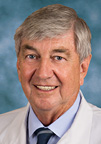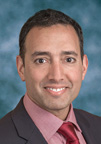 Sarasota Memorial ECT Services
Sarasota Memorial ECT Services
Electroconvulsive therapy (ECT) is a safe, effective treatment for those who suffer from severe depression or other mental health conditions. A voluntary behavioral-health treatment performed under general anesthesia, ECT employs brief electrical pulses to trigger the rapid discharge of nerve impulses in the brain, changing the patient’s brain chemistry and alleviating the symptoms of certain mental illnesses. Where other treatments have been unsuccessful, these carefully monitored and controlled, ECT-induced seizures often result in rapid and marked improvements in the patient’s symptoms.
Sarasota Memorial’s ECT program is the most established in the region, successfully treating patients for more than two decades with a patient-centered approach that tailors care plans to the individual’s needs and goals. The program completes around 1,000 ECT treatments annually, 75 percent of which are outpatient procedures.
Our specially trained psychiatric physicians use the latest technology to administer ECT treatments in the hospital’s post-anesthesia care unit (PACU). This modern, advanced ECT method is far removed from the antiquated, high-dose electroshock treatments of the past, which attached such a stigma to the therapy. By using anesthesia and ultra-brief pulses in very controlled setting, today’s ECT process minimizes the potential for physical or cognitive side effects.
Who Should Consider ECT Therapy?
Electroconvulsive Therapy is a voluntary treatment administered on an inpatient or outpatient basis following a thorough evaluation by our specialized team of psychiatric physicians. While most patients are referred by a physician for treatment, we accept self-referrals as well.
ECT offers an alternative for those who have not had success with other treatments for severe depression or other mental illnesses, as well as those who cannot tolerate medications. Patients who can benefit from ECT therapy and should consider requesting an evaluation include those who suffer from:
- Severe depression
- Treatment-resistant depression
- Secondary depression for schizophrenic and bi-polar disorders
- Severe mania
- Catatonia
- Agitation or aggression in people with dementia
Benefits of Electroconvulsive Therapy
ECT brings about fast relief from many symptoms of mental-health illnesses, often resulting in significant improvement after just a few sessions, whereas some medications may take weeks to make a difference.
- ECT treatment is fast and can be done on an outpatient basis.
- ECT often works when other treatments and medications have failed.
- ECT is a viable alternative for those who cannot take medication for severe depression or several other mental health illnesses.
Learn More about ECT at SMH
If you’re considering ECT, we’re here to help. Please call the ECT coordinator at (941) 917-8133 to schedule an evaluation appointment, have your questions answered, or review patient insurance coverage.

Meet the Team
Parlane Reid, MD
Medical School: University of Connecticut, Farmington, Conn.
Residency: University of Connecticut, Farmington, Conn.
Matthew Thomas, MD
 Medical School: University of Kansas, Kansas City, Kan.
Medical School: University of Kansas, Kansas City, Kan.
Internship: Baylor College of Medicine, Houston, Texas
Residency: Baylor College of Medicine, Houston, Texas
Fellowship: Brown University, Rhode Island Hospital, Providence, R.I.